
Child Is Father to the Man is the debut album by Blood, Sweat & Tears, released in February 1968. It reached number 47 on the Billboard pop albums chart in the United States.
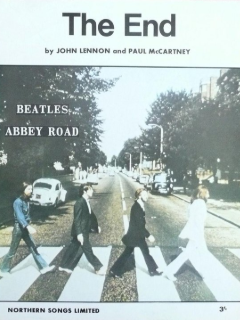
"The End" is a song by the English rock band the Beatles from their 1969 album Abbey Road. It was composed by Paul McCartney and credited to Lennon–McCartney. It was the last song recorded collectively by all four Beatles, and is the final song of the medley that constitutes the majority of side two of the album. The song features the only drum solo recorded by Ringo Starr with the Beatles.
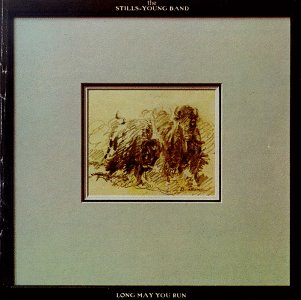
Long May You Run is a studio album credited to the Stills–Young Band, a collaboration between Stephen Stills and Neil Young, released in 1976 on Reprise Records. It peaked at #26 on the Billboard 200 and was certified gold in the United States by the RIAA. The album is the sole studio release by Stills and Young as a duo.

Beyond Appearances is the fourteenth studio album by Santana, released in 1985.
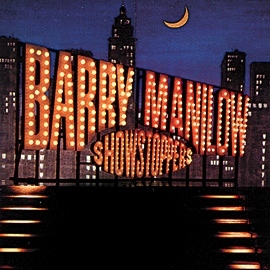
Showstoppers is an album by singer-songwriter Barry Manilow, released in 1991. It was his first album to not feature any original music.

Forget About It is a studio album by Alison Krauss, released in 1999. It reached number 5 on the Billboard Country Albums chart. The lead single, "Forget About It", peaked at number 67 on the Country Singles Chart, and "Stay" reached number 28 on the Adult Contemporary chart.
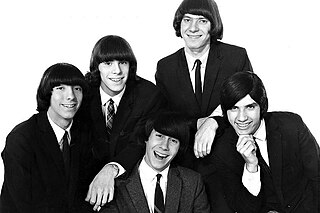
Los Mockers were a popular 1960s rock band in Latin America that was part of the Uruguayan Invasion. They were heavily influenced by The Rolling Stones and covered many of their songs. The band was formed in 1963 in Montevideo, Uruguay but moved to Argentina in 1966 after winning a contract with EMI Argentina. The original lineup disbanded in 1967. They briefly re-united in 2006.

Life in a Tin Can is the Bee Gees' eleventh studio album, released in January 1973.

Mixed Bag is the debut studio album by Richie Havens, released in 1966. Although it was Havens' first album release, Douglas Records later issued two unauthorized albums of material that had been recorded prior to the Mixed Bag recording sessions—Electric Havens (1968) and Richie Havens' Record (1969). Mixed Bag was released after Havens signed on with manager Albert Grossman and was released on Verve Folkways, a new folk music imprint of Verve Records.

Out of the Ashes is the 11th studio album by American country artist Jessi Colter, released in 2006 on Shout! Factory Records. It was Colter's first album in 10 years, and her first country music album in 22 years since 1984's Rock and Roll Lullaby. It was also her first release since 1981 to chart on the Top Country Albums chart, where it reached #61. It was the first album by Colter to be released following the death of her husband and country artist, Waylon Jennings. The title of the album, Out of the Ashes, explains the message that she has remained an artist without the help of Jennings.

Last of the Brooklyn Cowboys is a 1973 album by the American singer-songwriter Arlo Guthrie. The title was borrowed from a nickname given to Ramblin' Jack Elliott. Although not intended as a concept album, Guthrie recorded it with the goal of evoking a particular, "mythical" place and era, which he also intended to embody in the cover art.
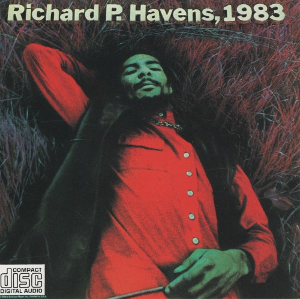
Richard P. Havens, 1983 is a 1968 double album set by folk rock musician Richie Havens featuring a combination of studio recordings and live material recorded in concert during July 1968. The album combined original material with several of the covers for which Havens was known. Notable songs include the singles "Stop Pushing and Pulling Me" and "Indian Rope Man", the latter of which has been multiply covered under its own name and in retooled identity as "African Herbsman." The genre-bending album was critically and commercially well-received, reaching #80 on the Billboard "Pop Albums" chart. Initially released on the Verve label, it has been reissued multiple times in various formats, including by Verve subsidiary Verver Forecast/PolyGram and Australian label Raven Records. It has also been compiled with albums Mixed Bag and Something Else Again in multi-cd set Flyin' Bird: The Verve Forecast Years on the Hip-O Select/Universal label.
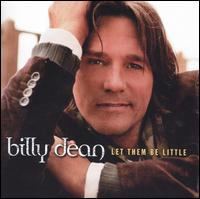
Let Them Be Little is the seventh studio album by American country music singer Billy Dean. His first album since Real Man seven years previous, it is also his first release on Curb Records. The album was originally to have been released in 2003, on View 2 Records, which promoted the first two singles. Asylum-Curb promoted the third single, "Let Them Be Little", which was co-written by Richie McDonald, lead singer of Lonestar, and recorded by the band on their 2004 album Let's Be Us Again. After this song came "This Is the Life", "Race You to the Bottom" and "Swinging for the Fence". Also included on the album are re-recordings of "Somewhere in My Broken Heart" and "Billy the Kid", two of Dean's early singles from 1991 and 1992.

I Turn to You is the first solo studio album by American country music artist Richie McDonald, following his departure from the band Lonestar in 2007. It was released on June 3, 2008 by Stroudavarious Records. The album peaked at number 6 on the Billboard Top Christian Albums chart.

Buhaina is an album by drummer Art Blakey and The Jazz Messengers recorded in 1973 and released on the Prestige label. The name comes from the name Blakey took for himself after conversion to Islam.

Alarm Clock is an album by the folk rock musician Richie Havens. It was released in 1971 by Stormy Forest. It is his highest charting album, reaching number 29 on the Billboard Top 200 in the United States. The opening track, a live cover of the Beatles' "Here Comes the Sun", reached number 16.
"If You're Gone" is a song written by Gene Clark that was first released on the Byrds' 1965 album Turn! Turn! Turn!.
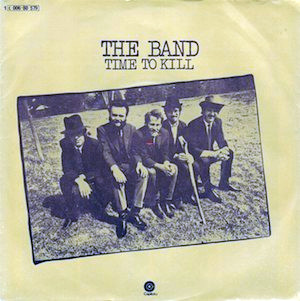
"Time to Kill" is a song written by Robbie Robertson that was first released by the Band on their 1970 album Stage Fright. It was also released as a single off the album, backed with the more famous "The Shape I'm In" and, although it failed to reach the Top 40 in the United States, it peaked at #13 in the Netherlands. It has also been featured on several Band compilation and live albums.

Woodstock – Back to the Garden: 50th Anniversary Experience is a live album by various artists, packaged as a box set of ten compact discs. Released by Rhino Records during the summer leading up to the fiftieth anniversary of the Woodstock Music and Art Fair, it contains selections from every performance at the music festival, which took place on August 15–18, 1969, in Bethel, New York. The discs also include stage announcements and miscellaneous audio material. The package contains essays by producer Andy Zax and Jesse Jarnow, details about the performers and notable festival figures, and photographs. This box set is a compilation derived from its limited edition parent box set. A smaller three-CD or five-LP sampler was also released.

















